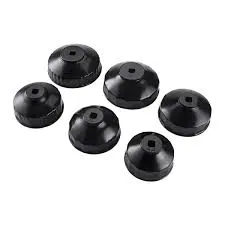Mobile:+86-311-808-126-83
Email:info@ydcastings.com
Top Aluminum Investment Casting Firms for Quality Manufacturing Solutions
The Landscape of Aluminum Investment Casting Companies
Aluminum investment casting, a precision manufacturing process, has gained immense popularity across various industries due to its ability to produce complex shapes with excellent surface finishes and tight tolerances. This method stands at the intersection of advanced technology and traditional craftsmanship, providing solutions tailored to the evolving demands of industries such as aerospace, automotive, medical, and consumer goods. In this article, we will explore the significance, advantages, and characteristics of aluminum investment casting companies, as well as how they are shaping the future of manufacturing.
Understanding Aluminum Investment Casting
Aluminum investment casting involves creating a mold from a wax pattern covered with a ceramic shell. Once the shell solidifies, the wax is melted away, and molten aluminum is poured into the cavity left behind. This allows for intricate designs and geometries that would be challenging or impossible to achieve with other manufacturing techniques, such as machining or die casting. Furthermore, the process is highly repeatable, making it suitable for both small and large production runs.
Advantages of Aluminum Investment Casting
1. Complex Geometries One of the standout features of investment casting is its ability to produce complex shapes. This flexibility allows engineers and designers more freedom to innovate while minimizing the need for additional machining.
2. High Precision and Accuracy Investment casting yields high dimensional accuracy and a superior surface finish. This reduces the need for secondary operations, thereby saving time and costs.
3. Material Efficiency This process generally results in less waste material compared to traditional casting methods. The ability to recycle aluminum scraps also enhances its sustainability profile.
aluminum investment casting companies

5. Versatile Applications Aluminum investment casting is used in various applications, from intricate engine components to medical devices—demonstrating its versatility across different market sectors.
The Role of Aluminum Investment Casting Companies
Aluminum investment casting companies are pivotal in driving innovation and efficiency in manufacturing. These companies typically offer a range of services, including design assistance, prototyping, production, and finishing. Many of them invest heavily in advanced technologies such as Computer-Aided Design (CAD) and Computer-Aided Manufacturing (CAM) to optimize the design process and production workflow.
Moreover, these companies play a crucial role in adhering to industry standards and certifications such as ISO 9001, which ensures that their products meet quality management principles. This focus on quality and compliance positions them as trusted partners for businesses looking to source reliable aluminum components.
Challenges and Future Outlook
Despite its many advantages, the aluminum investment casting industry faces several challenges, including fluctuating raw material prices, increasing competition, and demanding customer expectations for faster lead times and lower costs. Companies must continuously innovate and streamline their processes to remain competitive. Investments in automation and advanced manufacturing technologies, including additive manufacturing, are likely to shape the future of this industry.
As industries increasingly prioritize sustainable practices, aluminum investment casting companies are also looking to enhance their environmental performance. This includes minimizing energy consumption during production and adopting recycling initiatives for aluminum scrap.
Conclusion
Aluminum investment casting is a sophisticated manufacturing method that combines precision with versatility, meeting the needs of various industries. As aluminum investment casting companies evolve with technological advancements and market demands, they will continue to play a vital role in shaping the future of manufacturing. With their commitment to quality and innovation, these companies are well-positioned to navigate the challenges ahead, ensuring they remain integral to the supply chain of essential aluminum components.
-
Why Should You Invest in Superior Pump Castings for Your Equipment?NewsJun.09,2025
-
Unlock Performance Potential with Stainless Impellers and Aluminum End CapsNewsJun.09,2025
-
Revolutionize Your Machinery with Superior Cast Iron and Aluminum ComponentsNewsJun.09,2025
-
Revolutionize Fluid Dynamics with Premium Pump ComponentsNewsJun.09,2025
-
Optimizing Industrial Systems with Essential Valve ComponentsNewsJun.09,2025
-
Elevate Grid Efficiency with High-Precision Power CastingsNewsJun.09,2025











